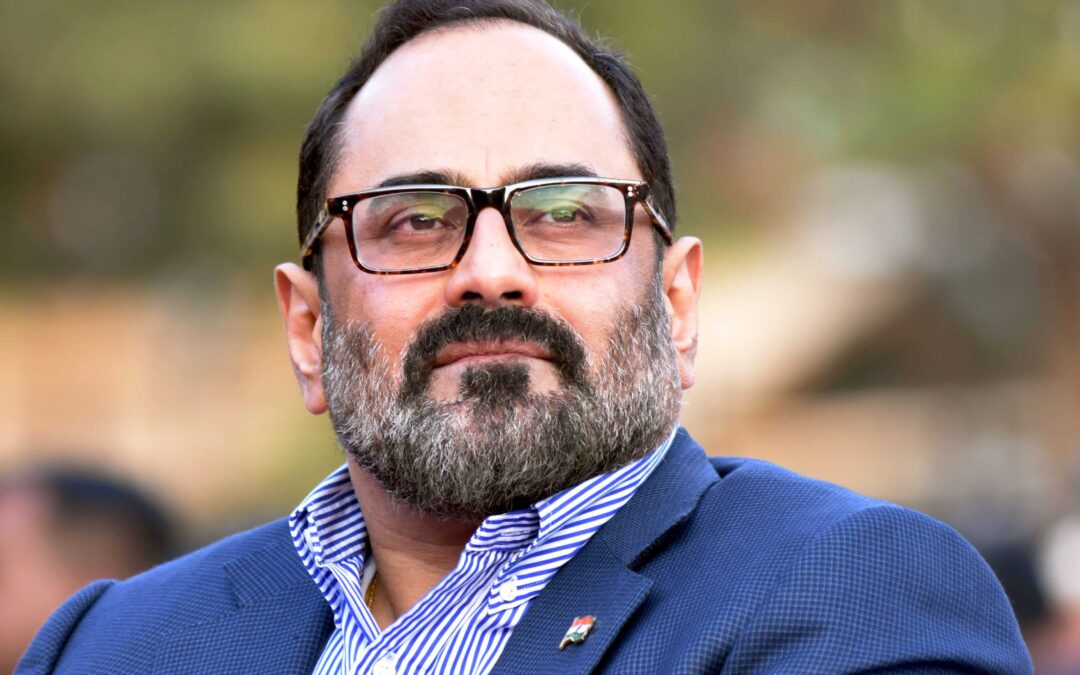Rajeev Chandrasekhar, minister, Electronics and Information Technology
It comes amid growing concerns over deepfakes – realistic yet fabricated videos created by artificial intelligence (AI) algorithms trained on online footage – which a top minister this week said this week India is drawing up rules to address. Chandrasekhar said the companies must raise awareness of the rules by reminding users every time they log in that they cannot post such content, or by issuing reminders
India’s government on Friday warned social media firms including Facebook and YouTube to repeatedly remind users that local laws prohibit them from posting deepfakes and content that spreads obscenity or misinformation, two sources told Reuters.
The warning was conveyed by deputy IT minister Rajeev Chandrasekhar in a closed-door meeting where he said many companies had not updated their usage terms despite 2022 rules that prohibit content “harmful” to children, obscene or that “impersonates another person”.
It comes amid growing concerns over deepfakes – realistic yet fabricated videos created by artificial intelligence (AI) algorithms trained on online footage – which a top minister this week said this week India is drawing up rules to address.
Chandrasekhar said the companies must raise awareness of the rules by reminding users every time they log in that they cannot post such content, or by issuing reminders.
He said otherwise he will issue directions forcing them to do so, said the two sources, who declined to be named as the meeting was private. The minister described it as a “non-negotiable” demand of the Indian government during the meeting, said one of the sources.
India’s IT ministry said in a press statement all platforms had agreed to align their content guidelines with government rules. Facebook and Chandrasekhar did not immediately respond to a request for comment.
Alphabet Inc’s Google, which owns YouTube, said in a statement it was committed to responsible AI development and has robust policies and systems to identify and remove harmful content across its products and platforms. The Indian government and Prime Minister Narendra Modi have raised concerns over deepfakes in recent days.
Internet, tech can do harm if not regulated via prism of safety, trust
Internet and technology – unless regulated carefully through the prism of safety and trust – have the power to harm users Chandrasekhar said on Friday, adding that ‘guardrails’ have to be carefully developed without over-regulating innovation.
The Minister of State for IT and Electronics said that while artificial intelligence (AI) is one of the biggest inventions of recent times, the government is committed to ensuring the safety of users on digital platforms, given that India is one of the largest connected nations in the world with almost 850 million Indians already using the internet and 1.2 billion estimated to do so by 2025-26.
In a video message at the ‘DATE with Tech’ event, the minister also drew attention to the issue of deepfakes.
”You have heard recently our Prime Minister call out the risks of deepfakes. We have all been aware, especially some of us from my generation, who always believe that technology is a great enabler and is a force for good, but the recent events in the last 10 years have also shown that unless regulated carefully and through the prism of safety and trust, internet and the broader technology ecosystem can also be a power for harm and criminality,” the minister said.
Therefore, ”guardrails carefully developed without over-regulating innovation is something that we are focusing on, working with the rest of the world,” he noted.
The safety and trust of all online users (digital nagriks) is a policy imperative.
India is an extraordinary case study of the deployment of technology for the public good, he said, highlighting the success of the UPI.
”Technology at scale has been demonstrated in India…it is not only about creating unicorns, billionaires, and jobs but fundamentally transforming governance and democracy,” Chandrasekhar said.
The digitalisation of governance and economy has led to an extremely vibrant ecosystem of startups in the country.
”UPI has spawned one of the world’s most exciting fintech systems in the world, which is now growing and thriving and creating unprecedented opportunities in India,” he said.
India’s technology prowess has gone beyond the traditionally-strong areas of IT and ITES, and now covers all-new, critical and emerging areas of technology.
”Today, we are living in an era where every aspect of the digital economy, innovation economy, semiconductors, micro-electronics, quantum, high-performance computing, AI…every area of technology and innovation economy has an Indian flag with one, two or more Indian startups that are doing very well,” he said.
India has established its presence in every area shaping the future of technology, he added.
”Be it next-generation AI chips, cybersecurity platforms…any of the areas that are important in terms of growth and opportunity and in shaping the future of technology, we have India presence there firmly,” Chandrasekhar said.
During a virtual summit of G20 nations on Wednesday, Prime Minister Modi called on global leaders to jointly work towards regulating AI, and raised concerns over the negative impact of deepfakes on society.
Countries across the world are racing to draw up rules to regulate AI. India has been tightening regulations of social media companies, which count the South Asian nation as a top growth market.
Last year, the government privately criticized the companies for not removing what it described as fake news on their sites, which it said had forced it to order content takedowns.
Reuters

